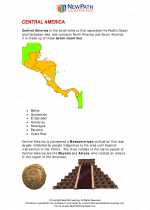Martin Luther King Jr.
Martin Luther King Jr. was a prominent leader in the American civil rights movement. He was instrumental in the advancement of civil rights using nonviolent civil disobedience based on his Christian beliefs. His activism and leadership played a pivotal role in ending the legal segregation of African-American citizens in the United States, as well as the creation of the Civil Rights Act of 1964 and the Voting Rights Act of 1965.
Early Life and Education
Martin Luther King Jr. was born on January 15, 1929, in Atlanta, Georgia. He was the son of a Baptist minister and was exposed to segregation and racism from a young age. He excelled in school and entered Morehouse College at the age of 15. After graduating from Morehouse with a degree in sociology, he went on to study theology at Crozer Theological Seminary in Pennsylvania and later earned his Ph.D. in systematic theology from Boston University.
Leadership in Civil Rights Movement
King became involved in the civil rights movement in the mid-1950s, leading the Montgomery Bus Boycott in 1955 after Rosa Parks was arrested for refusing to give up her seat on a segregated bus. This event brought King to national prominence and he continued to lead civil rights protests and demonstrations, including the March on Washington in 1963 where he delivered his famous "I Have a Dream" speech.
Legacy and Impact
Tragically, Martin Luther King Jr. was assassinated on April 4, 1968, in Memphis, Tennessee. However, his legacy and impact on the civil rights movement continue to resonate around the world. His nonviolent approach to activism and his commitment to equality and justice have inspired countless individuals and movements striving for social change.
Study Guide
- What were the significant contributions of Martin Luther King Jr. to the civil rights movement?
- How did King's Christian beliefs influence his approach to activism?
- What were the key events in the life of Martin Luther King Jr. that shaped his role as a civil rights leader?
- What was the significance of the March on Washington and King's "I Have a Dream" speech?
- Discuss the impact of Martin Luther King Jr.'s legacy on the civil rights movement and society as a whole.
[Martin Luther King Jr] Related Worksheets and Study Guides:
.◂Social Studies Worksheets and Study Guides Eighth Grade. Central America

 Worksheet/Answer key
Worksheet/Answer key
 Worksheet/Answer key
Worksheet/Answer key
 Worksheet/Answer key
Worksheet/Answer key
